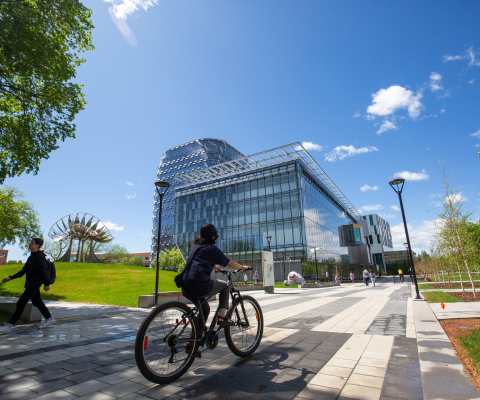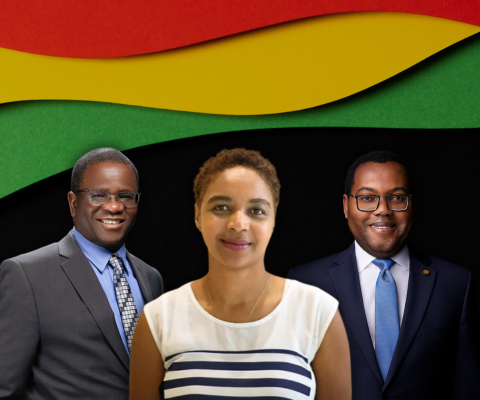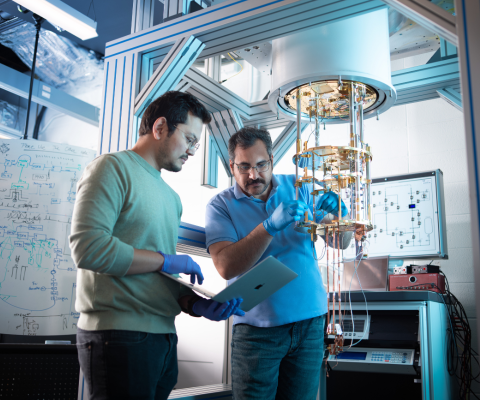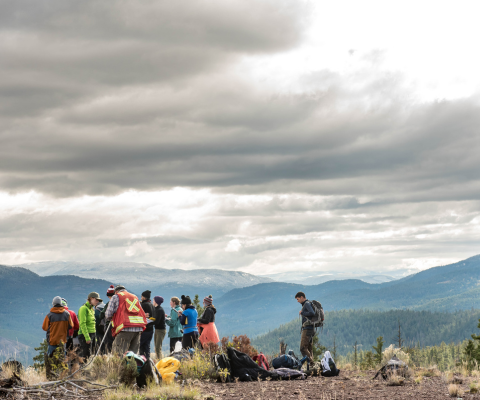Investing in Canada as a global leader

The pandemic presented challenges felt on a global scale, revealing many areas of Canada’s support systems that need attention and investment. Our final session of Accelerate 2022 was moderated by Teresa Marques and included the following panelists: Jennifer Brennan, Sara Wilshaw, Mark Beckles and Paul Davidson.
From crisis to recovery post-pandemic
The many inequities that were revealed during the pandemic can also be opportunities for growth, to build a stronger and more inclusive Canada.
Taking initiative was a key theme in the discussion, as well as recognizing areas that need attention and approaching them with boldness. As we look to renew our society and economy post-pandemic, one of the main questions we can ask ourselves is: How can we envision a better Canada with this opportunity?
“Canada, in 10, 15, 20 years, will look like ‘X’. I think if there is an opportunity, it is to define what that ‘X’ is.” – Mark Beckles
Inclusion in the future of innovation
The pandemic shed light on marginalized communities that felt the impacts of COVID-19 harder than others and highlighted a need for more inclusive action in the future.
Discussion touched upon the importance of moving away from individualism in times of crisis and, instead, moving towards a more equitable society.
Brennan outlined five actionable steps to build a more inclusive future:
- Listen deeply.
- Show up, again and again.
- Invest in capacity.
- Commit to demonstrating how change can happen.
- Take accountability back to the community every step of the way.
The importance of working together
One of the central themes of discussion centered around cross-sectoral collaboration and the community benefits gained when working in partnership.
Davidson noted the present shift from a model of competition to a model of collaboration. He underscored that when Canadians work together, great innovations and achievements can be made.
Universities have been collaborating with and listening to communities to meet their needs. For instance, the Global Skills Opportunity program, which offers international experience to students, was developed in collaboration with universities, government and the private sector.
“We have to build capacity, we have to build institutional resilience and innovation and we have to invest in young people.” – Paul Davidson
Inspiration from our neighbours
Cross-sectoral collaboration can be achieved in many ways, and we can learn from other countries’ example.
Wilshaw discussed how green infrastructure programs in the US and Europe rival the focus that other countries have on science and technology, research, artificial intelligence and global conversations about data and privacy.
She touched upon the pivotal role that universities play in analyzing these issues and how they can help advance Canada on the global stage.
“We’ve shown through a lot of creativity, a lot of ingenuity, and a lot of openness—more so in these last few years‑—so the more we go down that path and engage, we’ll get to some great places. – Sara Wilshaw
Learn more about Accelerate 2022.
About Universities Canada
Universities Canada is the voice of Canada’s universities at home and abroad, advancing higher education, research and innovation for the benefit of all Canadians.
Media contact:
Lisa Wallace
Assistant Director, Communications
Universities Canada
[email protected]
Tagged: Research and innovation
Related news
-

Urgent action for our publicly-funded universities critical to Canada’s economic stability and growth
-

Outstanding discoveries by Black researchers in Canada
-

Universities are advancing technology through international partnerships
-

Global university partnerships are finding solutions to the climate crisis
